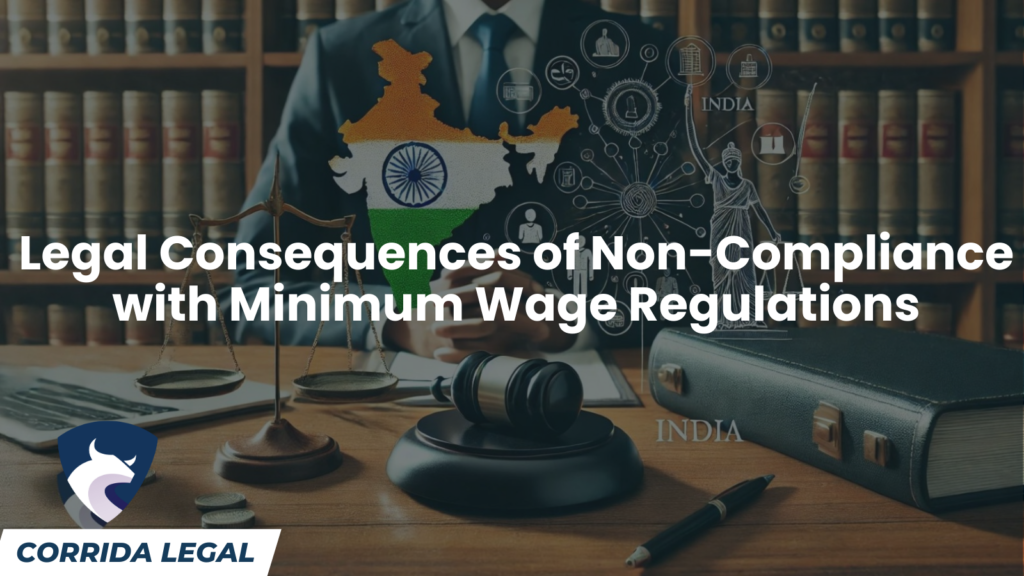Non-compliance with minimum wage regulations can have serious legal consequences for employers. Understanding these consequences helps in ensuring compliance and promoting a fair and inclusive work environment.
Legal Framework for Minimum Wage Regulations
- Code on Wages, 2019: The Code on Wages consolidates laws relating to wages, including the Minimum Wages Act. It mandates the payment of minimum wages to all employees and aims to ensure fair compensation for their work.
- Central and State Governments: The central and state governments are responsible for setting and revising minimum wage rates. Employers must comply with the minimum wage rates prescribed by the appropriate government authority.
Consequences of Non-Compliance
- Fines and Penalties: Employers who fail to comply with minimum wage regulations may face fines and penalties. The amount of the fine depends on the severity of the non-compliance and the number of employees affected.
- Imprisonment: In cases of serious non-compliance, employers may face imprisonment. This serves as a deterrent against deliberate violations of minimum wage regulations.
- Payment of Back Wages: Employers found guilty of non-compliance may be required to pay back wages to affected employees. This includes the difference between the wages paid and the minimum wage prescribed by law.
- Legal Proceedings: Employees can file complaints against non-compliant employers with the appropriate government authority. This may result in legal proceedings, inspections, and investigations to ensure compliance.
- Reputational Damage: Non-compliance with minimum wage regulations can damage an employer’s reputation. This can affect the company’s relationship with employees, customers, and stakeholders, leading to a loss of trust and credibility.
Ensuring Compliance with Minimum Wage Regulations
- Regular Review of Wage Rates: Employers should regularly review and update their wage rates to ensure compliance with the minimum wage rates prescribed by the appropriate government authority. This helps in avoiding unintentional non-compliance.
- Accurate Record-Keeping: Employers must maintain accurate records of wages paid to employees, including details such as the amount paid, payment date, and any deductions. Proper documentation helps in ensuring compliance and addressing any disputes that may arise.
- Training and Awareness: Employers should conduct training and awareness programs to educate employees and management about the provisions of minimum wage regulations and the importance of compliance. This helps in promoting a culture of fairness and non-discrimination.
- Grievance Redressal Mechanisms: Establishing grievance redressal mechanisms allows employees to raise concerns about wage disparities and non-compliance. Employers should ensure that these mechanisms are accessible and effective in resolving complaints.
Case Studies and Examples
- Maruti Suzuki: Maruti Suzuki ensures compliance with minimum wage regulations by regularly reviewing and updating wage rates based on government revisions. The company maintains accurate records of wages paid to employees and promotes a fair and inclusive work environment.
- Infosys: Infosys has implemented comprehensive policies to ensure compliance with minimum wage regulations, including regular training and awareness programs, effective grievance redressal mechanisms, and accurate record-keeping. The company promotes employee well-being and fosters a positive organizational culture.
Conclusion
Non-compliance with minimum wage regulations can have serious legal consequences for employers, including fines, imprisonment, payment of back wages, legal proceedings, and reputational damage. By understanding these consequences and adopting best practices, employers can ensure compliance and promote a fair and inclusive work environment. These measures help in enhancing employee well-being, improving productivity, and fostering a positive organizational culture.
Other useful links:
Visit our publication page for detailed articles on contemporary legal issues and updates, including: Key Provisions of the POSH Act and How to Comply, Establishing Internal Committees: Best Practices and Legal Requirements, Navigating Anti-Discrimination Laws in Indian Workplaces
Corrida Legal is a leading Indian law firm with pan-India presence and offices in Gurgaon, New Delhi and Mumbai. Reach out to us on LinkedIn or contact us at contact@corridalegal.com/+91-9211410147 in case you require any legal assistance.


